If you’ve been keeping up with the continuing rise of indie comics you have undoubtedly found some of the most creative books on the cutting edge of storytelling. You have also likely found an entry point for many newer writers who are finding their start right here, sharing their talent in this space open to ingenuity and challenging conventional stories in a way unique to comics. This is where I found Image and Skybound’s new series Horizon and the brother behind the series, Brandon Thomas. It follows a hell of a concept — what if Earth invaded another planet? — and has quickly become one of my favorite series with its enormous potential. I spoke with Brandon Thomas to discuss Horizon and his career as a writer.
Black Nerd Problems: Congrats on the early success of the series. Can you tell readers about how you began with Image and Skybound, and the journey that turned Horizon from an idea to the comic they have in their hands?
Brandon Thomas: Thanks, man! We were so excited to blow through that first printing in less than a week, and I’m just ambitious enough to believe we’ve got more in our near future. But it’s always important for any independent project to get off to a great start, and the whole team feels fortunate that fans and retailers were willing to make that bet.
Nice moment of validation at the end of a journey started when I pitched Horizon to Skybound Editorial Director Sean Mackiewicz, way back in early 2014. He’d liked some of my previous work and invited me to submit some stuff, and Horizon was the very first thing I sent. The simple idea of “Earth invading an alien planet,” has been with me for years, but things exploded in so many new and exciting dimensions once they got involved in its development. Really cool thing is that I’d already learned so much about the characters and the world before I started scripting for real, so I felt very prepared for it when the time came to get down to business.
BNP: Horizon is one of those stories where humanity itself seems to be the nemesis of good. What initially got you interested in telling a story of humans invading another planet?
Brandon: It seems possible, doesn’t it? The only thing that seems to be holding us back is the technology, and there’s no doubt in my mind that if we were in the position to find a new place to live, we’d be working day and night to do so. I know there’s this strange notion that somehow our presence on the planet isn’t having a negative effect on it, despite the fact there’s billions and billions of us living and breathing here, but come on, take a look around. There is a day coming soon where denial is not going to be a legitimate POV, and unfortunately, it’ll probably be too late for credible fixes by then.
Horizon is about when we come to that horrible realization, and leaving our home becomes an absolute necessity. That decision really opens us up to the kind of honest, realistic look at ourselves that we’ve also been avoiding, because from the outside humanity is not offering a good look. Imagine us encountering someone from another planet. Their first questions would be, “What is wrong with these people? Why can’t they get it together?” Given a choice, they wouldn’t want us anywhere near them or their planet, so our only real option is to just find one and take it from them. Which is something human beings have always been really good at.
BNP: You have a whole world to build with Zhia, her people, and the history of their conflict with Earth. As we dive into the middle of the story, we see technology and relationships out of context and needing to be pieced together to understand everything going on. What was your thought process in balancing world building with story exposition? Were you concerned with frustrating your audience?
Brandon: That’s always a big concern, and doing a book like this is a major balancing act. The scariest thing I’d ever written in my life was that opening sequence for Horizon #1. It was like being stripped naked in a lot of ways — there was no cheating, no mounds of captioning to explicitly tell you what was happening and what everyone was feeling. The opening sequence is pure storytelling, and I only had Juan and Frank to save me, so my focus there was on helping create atmosphere. That and really putting you in the head of Zhia as she comes to Earth, so it’s intentionally disorienting, there are clearly huge details missing that we’ll come back to, but launching a series that way was always a risk.
It’s much easier to show you something amazing and unexplained, then flashback and methodically work towards it. My editors definitely had to coach me through the sequence a bit, and that’s why I love working with them, but we assumed it wasn’t going to be for everyone. We suspected a lot of people would dig it though, and I’m confident some people a little turned off by it will return, once more of the context is revealed.
Another thing to consider is that when it was written, we didn’t know how much of the twist would be revealed up front. So it was especially gratifying to hear from people that had no idea what the book was about, then when they hit that closing scene, they were really excited and surprised by our perspective on the classic alien invasion story.
I’m really excited for #3 to get out there ’cause this is the script that got the series greenlit, and some major pieces of the puzzle get unveiled. First big time villain hits the stage too, so that’s another thing making this a real “key” issue.
BNP: I want to talk about your relationship with artist Juan Gedeon when it comes to character design. Zhia and her people are blue with a glowing aura of electricity around them, but are otherwise quite human relative to what we can conceptualize from people from another planet. How did you envision their character design, and what weighed into the decision to keep them relatively familiar? Were there any elements that Gedeon added his own twists?
Brandon: Design of the suits and tech is pretty much all Juan, and that was something that is only touched on broadly in the scripts. More like “this is the type of stuff the Shift Suits need to do,” but visually, all of that is him and it looks amazing. Think the suits and the bike that Zhia steals got locked in first, and once those sketches started to come back, we felt like geniuses because Juan’s style and aesthetic was a perfect fit for this book, just like we thought it would be.
The Valians looking mostly like us is an important detail, and something that binds us a little more closely together. Their home planet, which we’ll see a little more of soon, is an idealized version of ours in some ways, but in others it’s exactly the same. You’ll see, and as the series evolves more of the reasoning behind that decision will become crystal clear. Think of the differences in skin color amongst our own society, and how this very simple, arbitrary thing is enough to divide us into competing factions. Stay tuned, but we’ll be digging deep into this.
BNP: One of my favorite elements of Horizon is its hook – the simple premise of what would happen if we were the invaders of another planet is an analog to colonialism mixed with sci-fi. On the other hand, the plot seems to suggest we’ll learn a lot of personal history of Zhia and her relationships with her comrades. As readers get to know Zhia, her team, and the history that came before them, it makes me wonder: would you consider Horizon more plot driven or character driven?
Brandon: Probably character, but that focus really does influence the plot in every single way. It takes a certain kind of person to come to an alien world with three of their closest friends, and decide to pull the entire planet down all around them. How is that even supposed to work, right? Aren’t our characters hopelessly outnumbered and completely out of their league? After watching Zhia take her first steps on Earth, even though it’s clear her landing didn’t go quite as planned, I want you to feel that sense of determination and self-righteousness spilling out of her, which knots both elements solidly together.
The character work is where you make your money though, like quarterbacks and third downs. Without cool characters and dueling perspectives to quickly plug into, no crazy plot twist or sharp premise is enough to sustain you for months and months. That stuff gets people into the building, but the character bits and the evolution everyone goes through keeps them there.
BNP: We’re seeing Zhia’s squad gradually assembled, which, for me, is a great build towards the larger conflict to come. How deep is her team? Do you enjoy writing the build or feel impatient for the larger action to begin?
Brandon: Little impatient (laughs). That’s the double-edged sword of being way ahead (12 scripts are already in) but the thing I’m most excited for you guys to see is how the book looks once the action turns way the hell up. Action, car chases, and fights are the things that Juan really excels at drawing, and once he came on board, Horizon became a lot more visceral and explosive. First few issues were definitely a slow burn, and written before he officially came on board, but hold on tight cause very soon the dial gets twisted and then everyone gets to witness the true greatness of Juan Gedeon. Jaws will drop and everyone will realize, “Ohhh, so THIS is what Horizon is!”
BNP: How would you describe what success looks like for you with this series? Is it based in sales? Fan reception? Something else entirely?
Brandon: I’ll take a little of all of that (laughs). Probably supposed to say that sales don’t matter to me, but as that is one of the strongest determinants of whether or not we get to finish Horizon on our own terms, and at the proper pace, it’s important. I have a number in my head of about how many issues the book needs to fully tell the story I’ve got swirling around in my head, but to reach that number though, we need a perfect storm of sales, critical buzz, and excitement from the fans. Everything is important, but money always speaks the loudest.
Personally, what I want as a writer is for the book to continue getting better with each and every issue. I touched on this above, but I am chomping at the bit for you guys to catch up to me, because some of the things that happen next, the reveals we’ve got in store, are going to be so exciting. What Horizon looks and feels like today is going to be far different from the scope of things once we reach, oh for instance, Horizon #10. In the words of the immortal Bart Scott, “CAN’T WAIT!”
BNP: What else are you working on these days? What’s next for you after Horizon?
Brandon: More Horizon (just turned in the outline for arc 3), and a couple secret things that I can’t talk about yet (laughs). What I can say is that a few years back we put out this cool little comic called The Many Adventures of Miranda Mercury. This was actually the book that Sean read years ago that led him to approach me about pitching in the first place. It’s a big part of my life and my relationship with comics, and so in 2017, she’s coming back. And Lee Ferguson (co-creator) and I cannot wait to continue her story, and dive into this new comics landscape that is far more hospitable to female leads than it was when Miranda made her initial debut.
BNP: Finally, I ask this of all writers: based on your experience, what advice would you pay forward to creatives who are trying to write their own stories out there?
Brandon: Start small. Set reasonable benchmarks for yourself and then hit them. There is a power in finishing something that can’t be denied or replicated. It’s the most important thing in the world when you’re starting out, because the world is built to make you fail and make you doubt yourself, which is even worse than failure.
When I decided to “break in,” everything I pitched or imagined was some sprawling 50-issue epic that no inexperienced writer is likely to get approved. Write one-shots, write three and four issue mini-series, build yourself up to that epic space opera. And if I’m allowed to plagiarize myself a bit, I’d like to share a Facebook post I wrote after the rejection letters for the DC writer’s fellowship problem went out.
In the summer of 2001, I started my Ambidextrous column and I was convinced that in about six months, I’d be “discovered,” and a year (or so) after that I’d be an exclusive writer at either Marvel or DC, working on the characters we all know and love, building classically epic Chuck Dixon length runs on several books. Over 15 years later, and I’m still not quite where I’d like to be, and feel like the floor could drop out from underneath me at any minute. I’ve had far more setbacks than successes, but I always tried to keep my head down and move forward in some way, even when it was hard and when I felt like my ambitions were grinding me into dust. Keep pressing. Keep pushing. Cultivate relationships with cool, supportive people to pick you up and push you back out there when you fall. It can happen. It will happen.
Believe.
Reading Horizon? Catch up on reviews of the comic book series here. Find it in your local comic book store — issue #3 is on shelves now.
Are you following Black Nerd Problems on Twitter, Facebook, Tumblr or Google+?


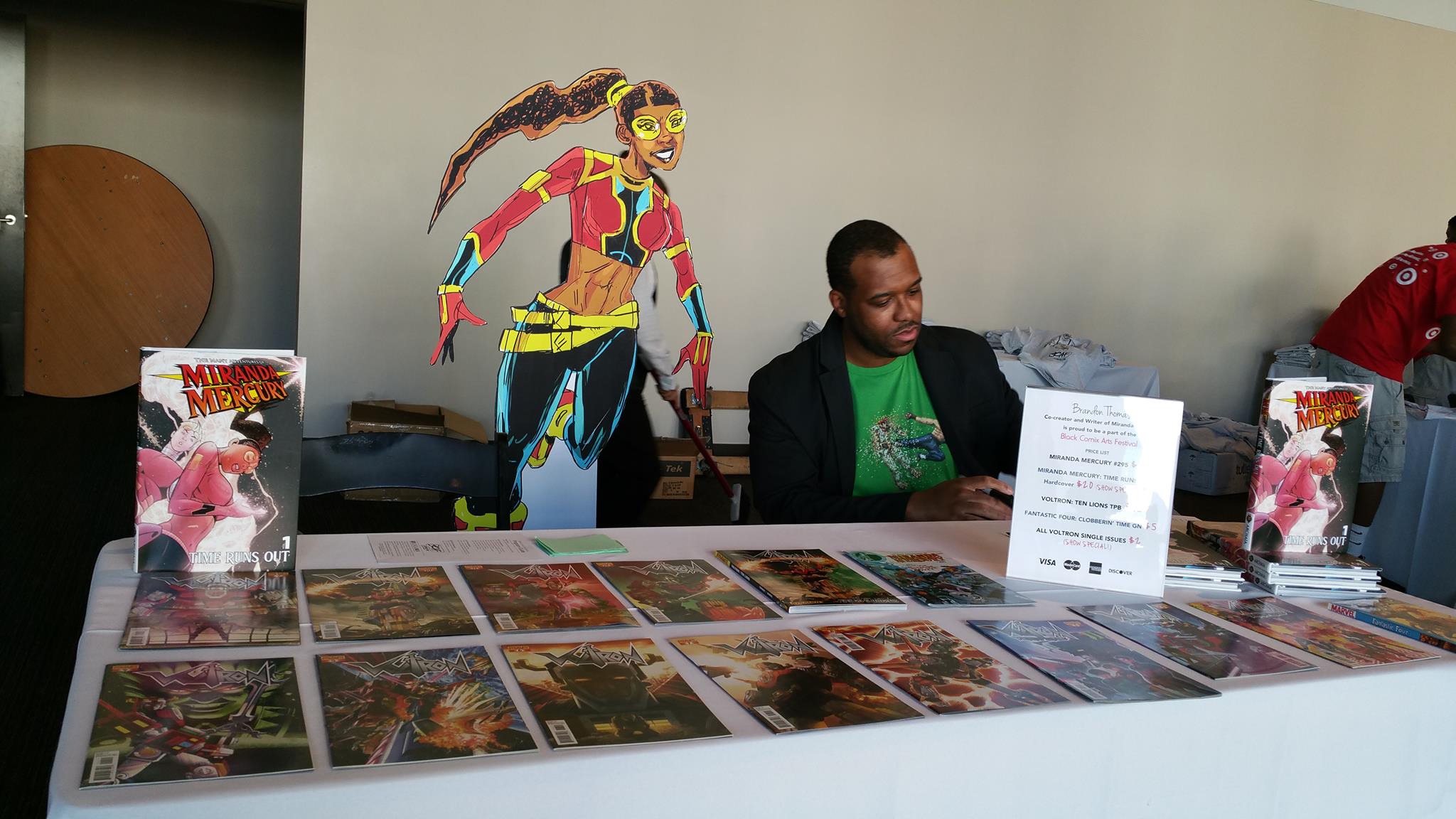
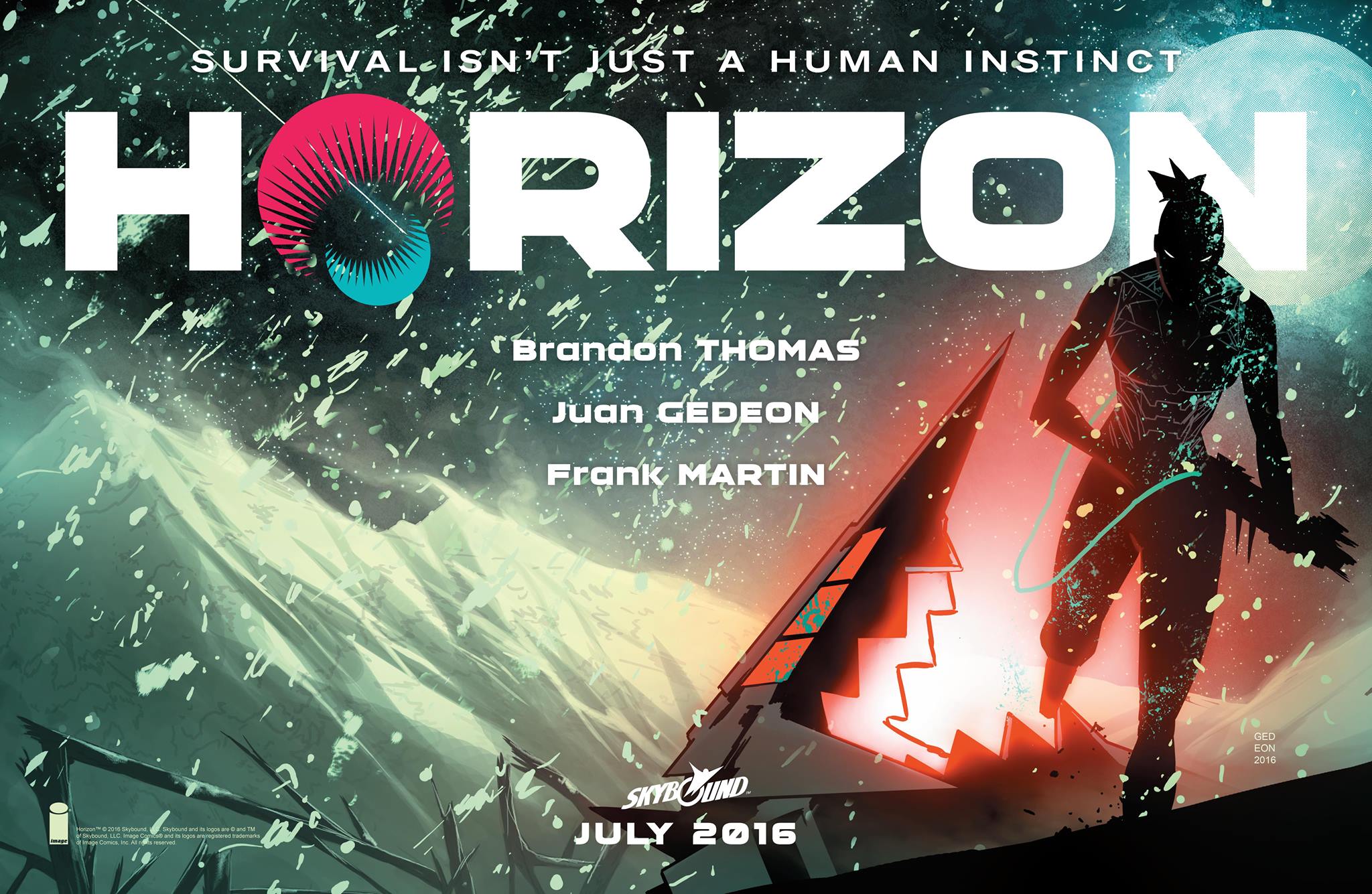
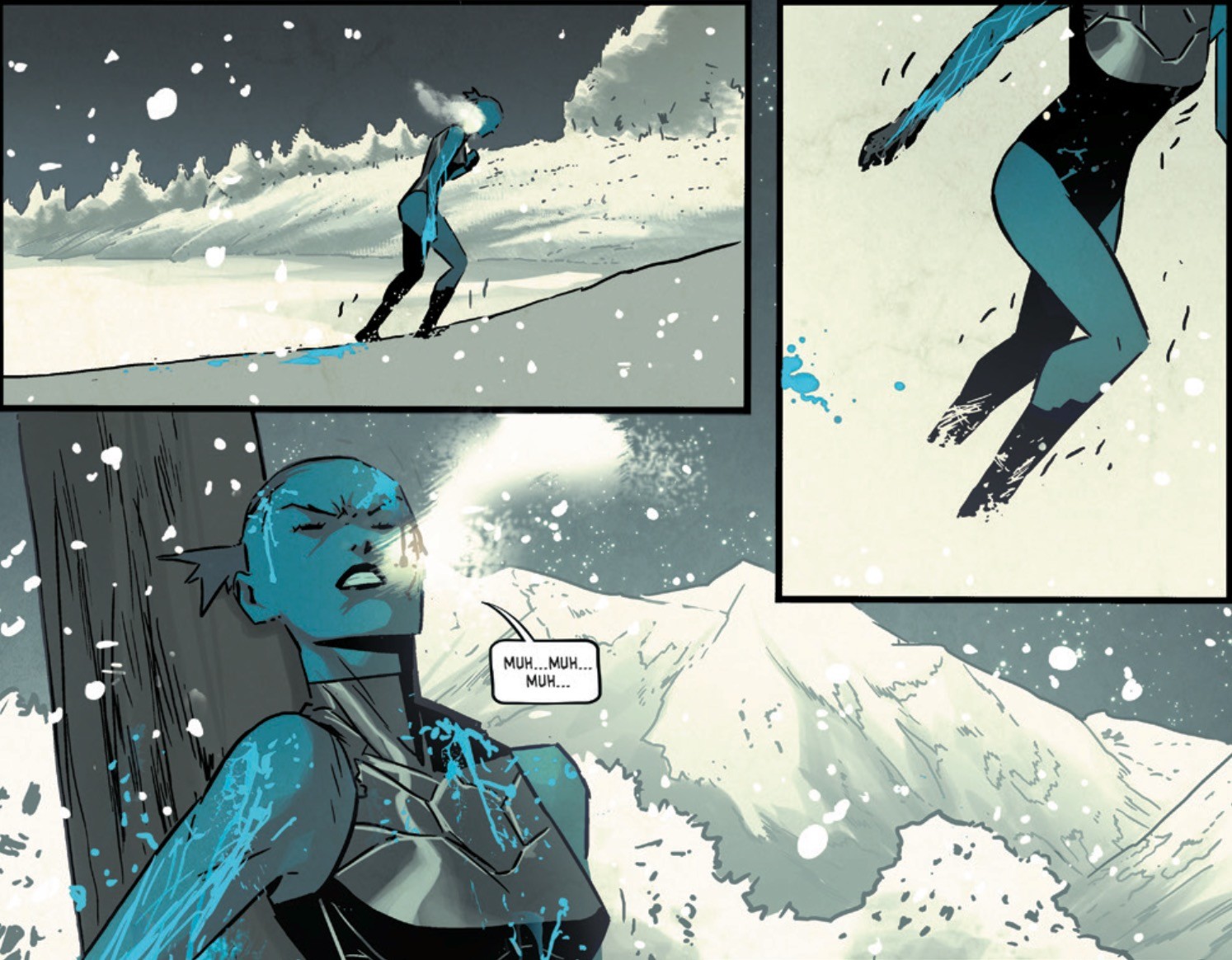

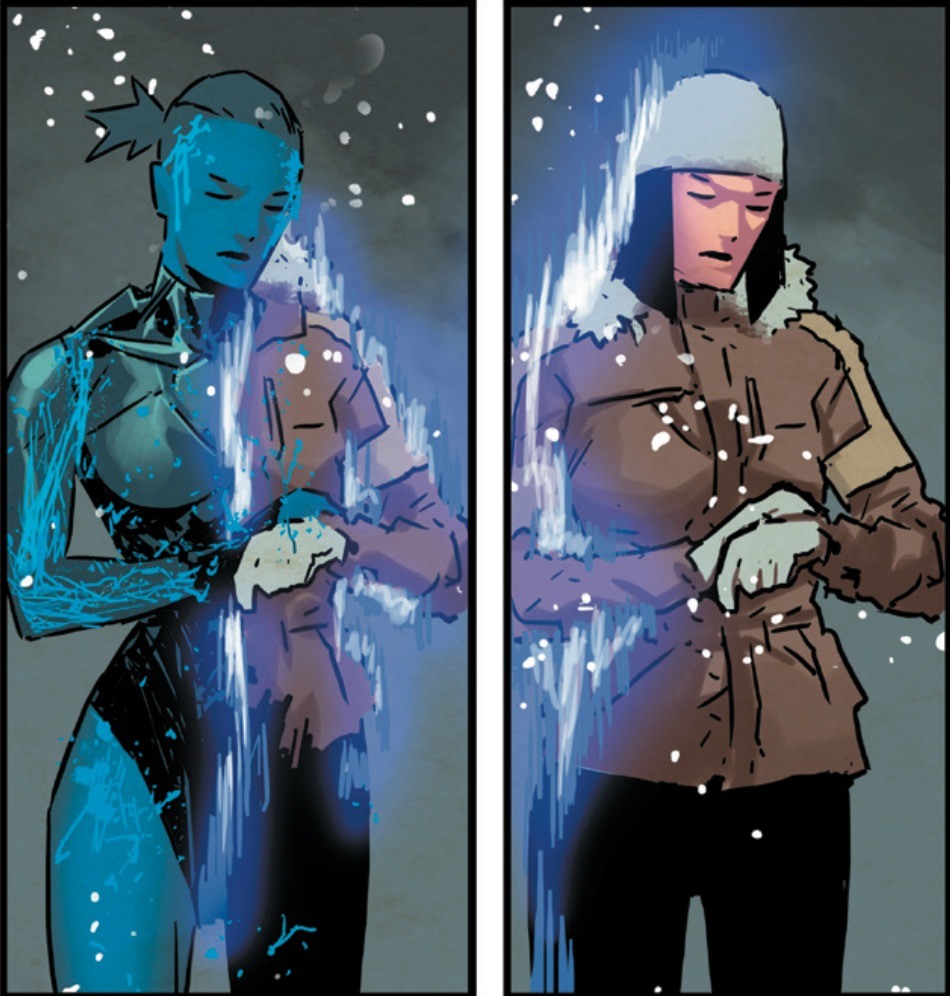
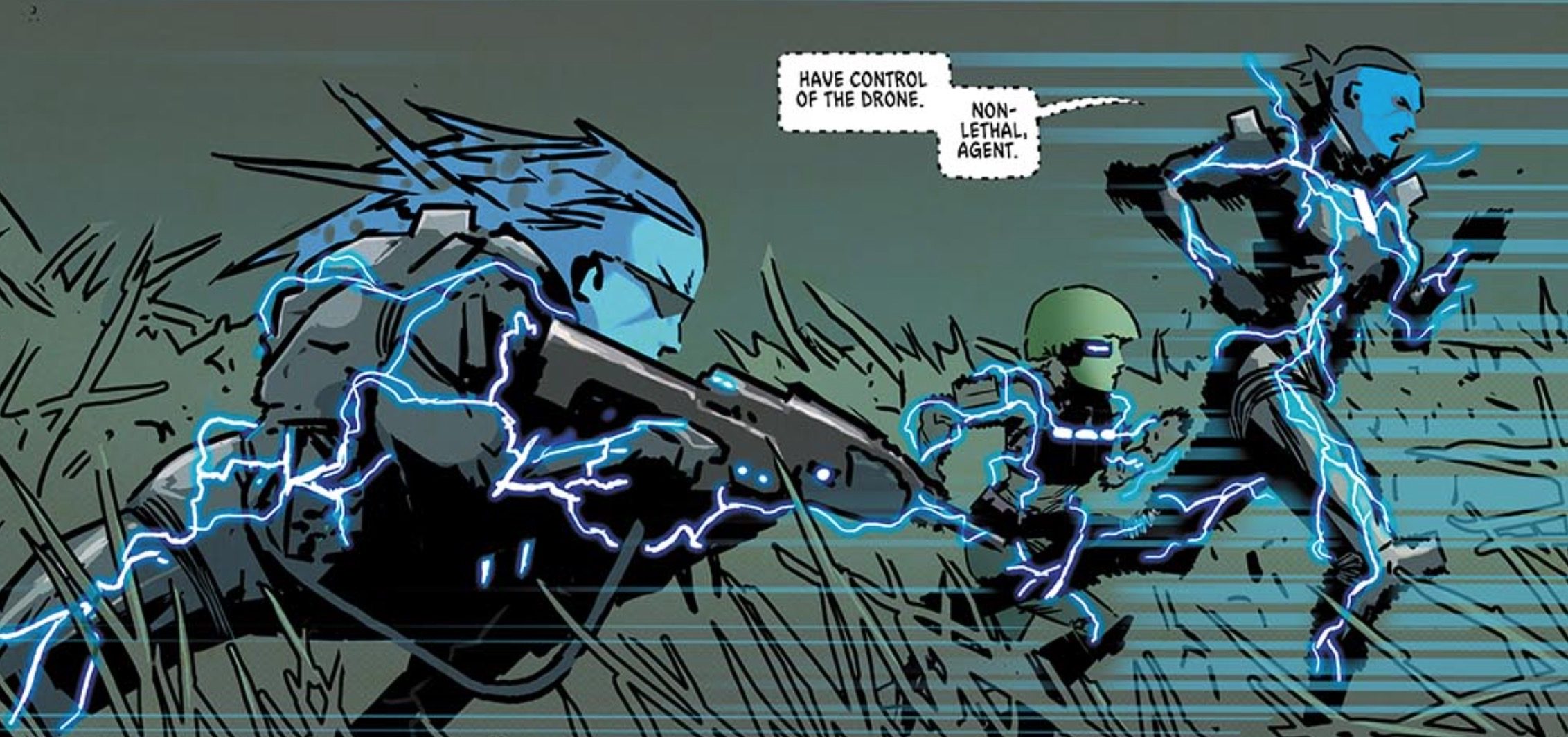
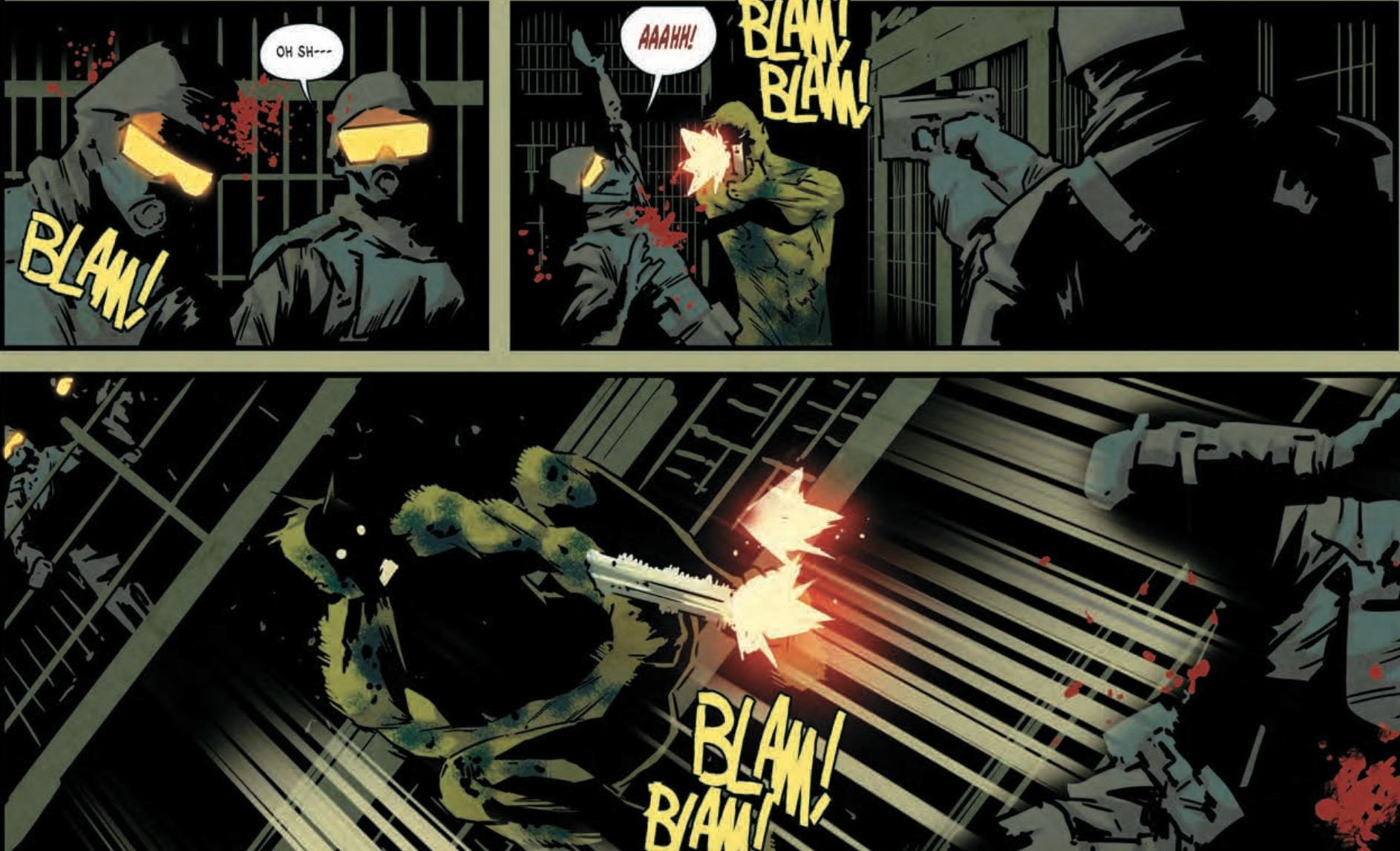
Show Comments